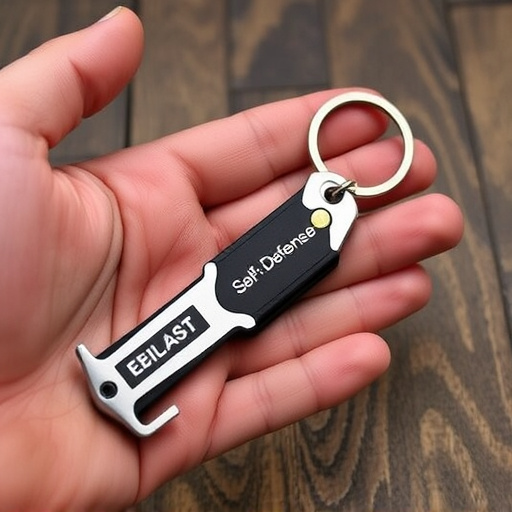Self-defense keychain regulations in the US vary state-by-state, with decibel levels, activation mechanisms, age restrictions, and carrying conditions differing significantly. These devices, popular for personal safety, require understanding local laws (like California's prohibition or Texas' allowance) to ensure responsible use within legal boundaries for enhanced safety and peace of mind. Before purchasing, consider daily routine and potential risks, as powerful alarms may be beneficial in high-crime areas.
“Staying safe is a top priority, especially with personal self-defense tools like keychains gaining popularity. If you’re considering a self-defense keychain with an emergency alarm, this comprehensive guide is for you. We explore the legal landscape of self-defense keychain laws across different states in the US, highlighting key aspects to understand before making a purchase. Additionally, we delve into the benefits, features, and practical tips for choosing the best option that suits your needs while adhering to local regulations.”
- Understanding Self-Defense Keychain Laws: A Comprehensive Overview by State
- The Benefits and Features of an Emergency Alarm Keychain for Personal Safety
- Practical Tips for Choosing the Right Self-Defense Keychain with Alarm Based on Your Needs and Local Regulations
Understanding Self-Defense Keychain Laws: A Comprehensive Overview by State
In the United States, laws regarding self-defense keychains vary significantly from state to state. Understanding these regulations is crucial for anyone considering carrying such a device for personal safety. Some states have strict restrictions on the use and possession of self-defense keychains, while others have more lenient policies. For instance, California has stringent rules, often prohibiting any type of electronic self-defense device without a permit, whereas Texas allows citizens to carry certain types of personal alarm devices without a license.
When navigating Self-Defense Keychain Laws by State, it’s essential to stay informed about local legislation. States like New York and Florida have specific guidelines regarding the decibel level and activation mechanisms allowed in self-defense keychains. Other factors, such as age restrictions and conditions for carrying, should also be considered. Being aware of these laws enables individuals to use these devices responsibly and within legal boundaries, ensuring their safety and peace of mind.
The Benefits and Features of an Emergency Alarm Keychain for Personal Safety
An emergency alarm keychain is a compact yet powerful tool designed to enhance personal safety, especially in unexpected situations. Its primary function is to emit a loud alarm when activated, attracting attention and potentially deterring dangerous individuals. This simple yet effective device is becoming increasingly popular as a self-defense mechanism, especially for women who often find themselves alone in public spaces. The convenience of having an emergency alarm readily available on your keychain means you can easily access it during a crisis, making it a practical addition to your personal safety toolkit.
The benefits extend beyond its immediate use; these keychains are also educational tools that raise awareness about self-defense and personal security. By carrying an emergency alarm keychain, individuals can stay vigilant and feel empowered, knowing they have a means of protection on hand. Additionally, the presence of such devices might serve as a deterrent to potential attackers, encouraging them to reconsider their actions due to the fear of drawing attention and facing immediate consequences. With varying legal considerations under Self-Defense Keychain Laws by State, it’s crucial to understand one’s rights and responsibilities when carrying such self-defense tools.
Practical Tips for Choosing the Right Self-Defense Keychain with Alarm Based on Your Needs and Local Regulations
When selecting a self-defense keychain with an emergency alarm, understanding your state’s laws on self-defense devices is crucial. Different states in the US have varying regulations regarding personal protection tools, including keychains with alarms. Some states have strict requirements for carrying such devices, while others are more lenient. For instance, certain states mandate that you have a valid reason to carry a self-defense keychain, like a previous victimization or a perceived threat. Others may require permits or registration for specific types of personal protection equipment.
To ensure compliance, research the Self-Defense Keychain Laws by State before making your purchase. Consider your daily routine and potential risks. If you live in an area with high crime rates or have previously experienced harassment, a powerful alarm feature could be beneficial. Conversely, if your daily commute is relatively safe, a basic model with a lower decibel rating might suffice while adhering to local regulations.
When it comes to personal safety, equipping yourself with a reliable self-defense keychain with an emergency alarm can be a game-changer. By understanding your state’s specific laws on self-defense keychains and following practical tips for selection, you can choose the right tool that aligns with both your needs and local regulations. In today’s world, staying prepared and informed is essential, and this comprehensive guide aims to empower individuals to make informed decisions about their safety.
